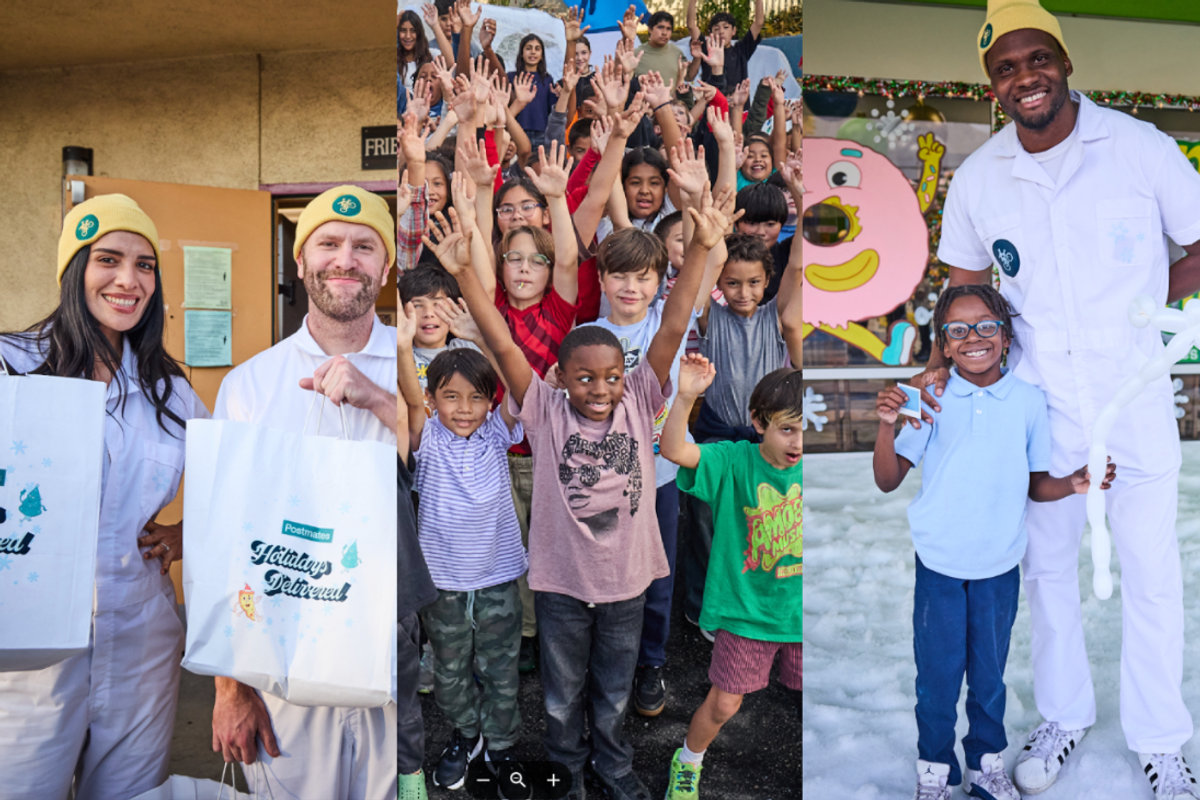One year after the Eaton Fire, Altadena is finding small ways to celebrate the holidays
Serving up Christmas trees and pizza dinners, Postmates partnered with local businesses to deliver holiday cheer to the Boys & Girls Club families of Altadena.
On December 17th, the holiday magic arrived on wheels. As a room full of kids watched in delight, a Postmates delivery truck adorned with lights and topped with giant replicas of burgers, fries and ice cream pulled up in front of the Boys & Girls Club of Pasadena’s Mackenzie-Scott branch bearing Christmas trees, twinkling lights, inflatable decorations, and STEAM-inspired toys designed to spark imagination and discovery. And as if that moment weren’t magical enough—it even snowed that day (thanks to a snow machine, also courtesy of Postmates).
Since early 2025, Postmates has made a concerted effort to support communities affected by the Eaton Fire, which was the fifth deadliest and second most destructive wildfire in California history. Postmates and Uber jointly pledged $3 million toward fire relief efforts in the immediate aftermath of the fire—and in the months since, they’ve continued to show up and find meaningful ways to uplift communities that were affected the most.

Altadena residents, in particular, suffered profound losses. Beloved churches, community gardens, and longtime local businesses were destroyed, and entire residential neighborhoods were devastated as well—including nearly half of the area’s Black households. The Boys & Girls Club of Pasadena quickly became a hub of relief for Altadena and Pasadena families in the hours following the fire—and so bringing holiday cheer back to the Club felt like a true full-circle moment and a heartfelt way to honor a community still rebuilding.
Dozens of kids at the holiday party enjoyed face-painting, crafts, and pizza—but the holiday cheer didn’t stop there. Postmates also partnered with local restaurants such as Prime Pizza, HomeState, Kismet Rotisserie, and Howlin’ Rays to deliver meals, gifts, and tokens of appreciation to local nonprofit organizations and LA Fire Station 11 that have supported Altadena’s recovery.
For many in the Altadena community, this holiday season marks the first since being displaced, losing homes or businesses, or grieving loved ones as a result of the fire. While rebuilding will take time, this small holiday celebration offered a moment of joy, comfort, and togetherness amid so much grief, guiding the way forward for the families who need it the most.
Want to keep spreading holiday cheer to Altadena? Shop local this holiday by ordering from LA restaurants, and consider making a donation to the Boys & Girls Club of Pasadena by clicking here.

